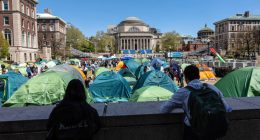Establishing humanitarian corridors and monitoring human rights is crucial – and achievable – as the Taliban take control
- Mark Malloch-Brown is a former UN deputy secretary general
I have seen this tragedy before. As a young UN planner in the late 1980s, I helped design the relief operation after the Soviets withdrew from Afghanistan. More than a decade later, as head of the UN Development Programme, I led early relief and reconstruction efforts after the fall of the Taliban. In both cases, the fragile peace that followed conflicts was undermined by key actors in the international community, who stood back or actively opposed when their assistance was needed. The US armed the opposition to the government the Soviets left behind; and when a US-backed government then took power after 9/11, it faced opposition from America’s Asian rivals.
Related: Why did we ignore the lessons of history in Afghanistan? We need a public inquiry | Jonathan Steele




